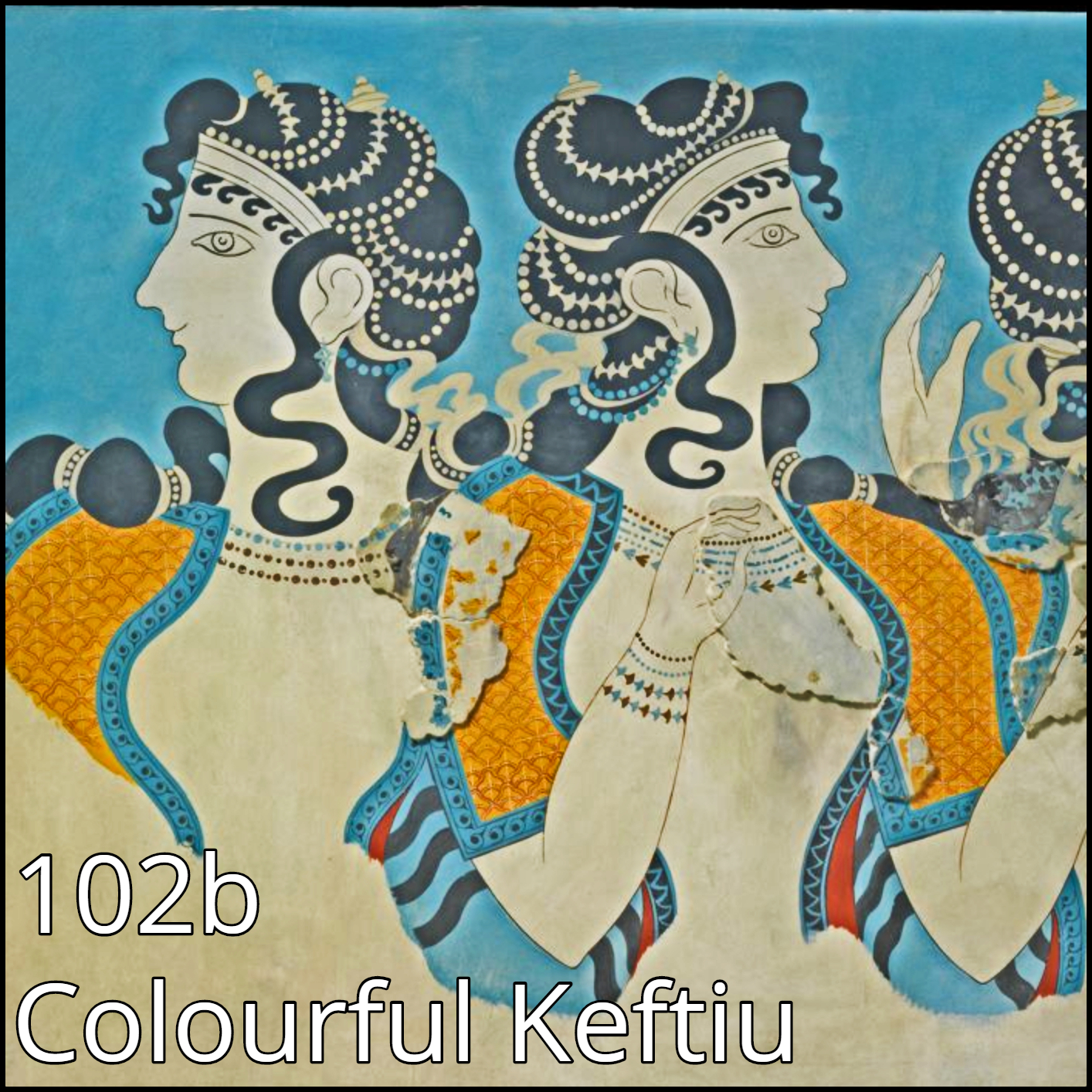Twilight on Crete.
In 1370 BCE an Egyptian embassy visited the Aegean. They came to see the Keftiu, aka the Minoans, who led a charmed life. They built enormous palace and temple cities, worshipped in sacred spaces and created beautiful art pieces. For a thousand years the Keftiu ruled Crete and enjoyed security. Until now…
Bibliography
Baruch Brandl (et al.), “Beth-Shemesh and Sellopoulo: Two Commemorative Scarabs of Amenhotep III and Their Contribution to Aegean Chronology,” The Annual of the British School at Athens 108 (2013).
Eric H. Cline, “Amenhotep III and the Aegean: A Reassessment of Egypto-Aegean Relations in the 14th Century B.C.,” Orientalia 56 (1987).
Nanno Marinatos, Minoan Religion: Ritual, Image and Symbol, 1993.
David O’Connor and Eric H. Cline (eds.) Amenhotep III: Perspectives on His Reign, 1998.
Cynthia W. Shelmerdine, “Mycenaean Palatial Administration,” in Deger-Jalkotzy and Lemos (eds.) Ancient Greece: From the Mycenaean Palaces to the Age of Homer, 2006.
Malcolm H. Wiener, “The Absolute Chronology of Late Helladic III A2 Revisited,” The Annual of the British School at Athens 98 (2003).





Well worth our time.